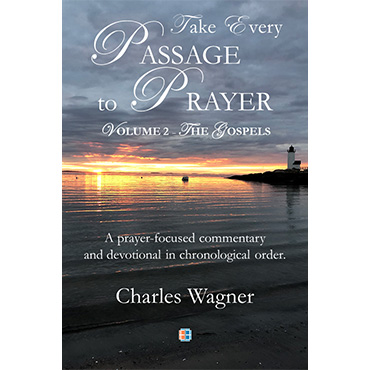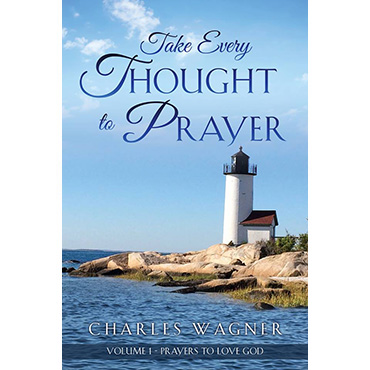The Gramazin Blog

The Birth of Jesus
Take Every Passage to Prayer - Volume 2, The Gospels
Sunday May 26, 2024
Luke 2:1-21, Matthew 1:25
Father, the Son of God demonstrated perfect humility by becoming a baby in a manger. Please help me to walk humbly before You, walking in total submission to my Father in heaven. I too need to have the faith of a little child before my Father in heaven. I am in total dependence upon You. I am nothing without You. I brought nothing into this world, and I will take nothing with me when I leave it. My name will soon be forgotten, by future generations and by those who have gone on to glory, where they see the only One worthy of worship and praise - Jesus Christ. Father, I am a sinner and a rebel from God. I cannot save myself from my sin. I need a Savior and I know who He is - Jesus Christ, born of a virgin in a manger in Bethlehem. Father, Jesus’ death on the cross did not bring peace to every individual in history. His shed blood brings peace only to those who place their faith that the shedding of His blood paid the penalty for all of their sin. Father, I have placed my faith that if I die this hour and appear in Your court, I will be declared holy, righteous, and without sin because the shed blood of Jesus Christ has satisfied Your justice and washed away all of my sin. I have the peace the angels spoke of to the shepherds because of what Christ has done for me. I thank You once more for salvation. Amen.
Father, I can imagine that if Joseph and Mary were not “in love” in their arranged marriage before, they were now. What godly young woman wouldn’t cherish a godly young man who believed her true story, defended her honor, saved her from public humiliation, and committed his life to help her raise none other than the Son of God? Joseph’s actions spoke of the kind of true love that teenage girls like Mary dreamt about. As for Joseph, it could only have been love that inspired him to do what he did for Mary - love for You that expressed itself in a love for a young girl who needed compassion and kindness. Your Word tells us also that Joseph had the patience and self-control to not have sexual relations with Mary until after the birth of Jesus, so that no 21st century talking head could tell us that Jesus’ biological father was Joseph.
As the weeks and months of Mary’s pregnancy went by, the couple must have had many conversations about parenting the Son of God.
“He created us! How can we be His parents?”
“How do you train the Son of God? What boundaries do we set for Him? He is our Heavenly Father but yet we are to send Him to bed early each night?”
“How are we going to navigate life in our social circles?”
‘Oh, what a cute baby? What’s his name?’
‘He’s Jesus Christ, the Messiah, the Son of God who has come to save you from your sins.’
‘Oh, my. Well, I’ve got to get going. I’ve got to wash my clothes or something. Bye.’
“Is that really our baby boy spoken of in Psalm 22 and Isaiah 53? My heart breaks that His destiny is to experience so much suffering. How are we going to deal with this? We can’t stop it from happening. He needs to save the world from sin. How can we protect Him without derailing God’s plan?”
While Joseph and Mary are having these discussions, word came that Caesar Augustus (63 BC to 14 AD), the first Roman emperor, was requiring everyone to return to their homeland to be registered for taxation. “Gaius Octavius”, the adopted son of Julius Caesar (100 to 44 BC), was one of the most successful emperors in the history of the empire. He ushered in 200 years of peace and prosperity, a period that historians have called the “Pax Romana”. He became the victor in the civil war after Julius’ assassination, defeating both Mark Antony and Cleopatra. Many historians credit the reign of Caesar Augustus throughout the Mediterranean world for the rapid advancement of Christianity in the first and second centuries AD. He enjoyed being worshipped by the populations under his control. His power stoked fear into the lives of citizens, as those who crossed him were punished severely, often by crucifixion. After his many military and administrative victories, the Senate officially declared him to be “god” after his death.
Caesar respected the diversity of the cultures under his control. An idol worshipper himself, he allowed the Jews to continue to worship You, but he controlled their lives through the power of the Sanhedrin. His decree for registration was to raise taxes to pay for his many building projects and to sustain his powerful military. The registration was to be administered by the governors in the various districts. Luke tells us that Publius Sulpicius Quirinius (51 BC to 21 AD) was the governor of Syria who also had taxation authority over Judea. Joseph and Mary were required to travel 100 miles to Bethlehem, an 8-to-10-day journey, because Joseph was of the house of David whose roots were in that city.
“Joseph, do you realize what this means?”
“I know. The prophets told us the Messiah would be born in Bethlehem.” (Micah 3:2)
“I’m going to give birth there. But where?”
“God will provide.”
Father, the journey must have been hard for a woman in her late stages of pregnancy. The women who joined them in the caravan to Bethlehem most likely attended to her daily needs. Upon arrival in the town, Mary’s water may have broken and there was urgency to find her a safe place to give birth. However, the out-of-towners who had arrived in town before Joseph and Mary had reserved every available room in the inns that they initially visited.
“Guys, Mary can’t wait. She has to deliver NOW. We don’t have time to look for any other rooms.”
“Ok, there’s a manger over there. Let’s put her in there and then you women help her deliver the baby.”
There He was. The Savior. The Messiah. According to the Gospel of John, the Creator of the world (1:1-3). He had tiny fingers and toes. His little arms and legs wiggled. His tiny eyes beheld His earthly parents face-to-face. Here was the very Son of God feeling, for the first time, the longing for food and the experience of human vulnerability. He craved to be safe in the teenage arms of His mother who suckled him.
Father, every year we celebrate this blessed event on December 25th. However, “experts” believe it is more likely that Jesus was born anywhere between March and September as the shepherds were typically in the fields during this time tending the flocks that were to be sacrificed during the festivals in the temple in Jerusalem, 6 miles away. It is believed that the Roman emperor Constantine (272-337), who became a Christian, repurposed a pagan holiday on December 25th that celebrated the sun god.
Father, You are truly awesome and so is Your Word. For years I have read in this passage that after Mary nursed Jesus, she put him in “swaddling” (strips of cloths) clothes. Why should we care about what clothes were put on Jesus?
I have since learned that the shepherds would wrap baby lambs in strips of cloth to protect them from being injured. The lambs to be sacrificed for our sin had to be “perfect”, without blemish. In Mary’s poverty, unable to purchase outfits for her newborn, she wrapped Jesus most likely in used strips of cloth that were found near the manger. In other words, Jesus was wrapped in the same clothes that sacrificial lambs were wrapped in. The swaddling clothes were a powerful metaphor for the ultimate destiny of this child - He will be sacrificed for the sin of all people. The continuous theme of salvation through Jesus can be found in every detail in Your Word. I praise You for that.
Father, we have evidence in this passage that shepherds were outcasts in society because they were forced to ply their trade in the fields six miles from the city of Jerusalem. Only Luke saw fit to mention them among the four gospel writers. Discrimination against shepherds had ancient roots. During the times of the patriarchs in Genesis, shepherding was an honorable profession for a nomadic people. However, Egyptian culture despised shepherding. As the Israelites settled into farming in Egypt during the 400 years before Moses, shepherding became a less respected profession. Jesse could not imagine that the future King of Israel would be his shepherd boy, his son David (1 Samuel 16:1-13).
However, it was to these humble second-class shepherds that the angel announced the birth of the long-desired Messiah. The Bible records no similar announcement to the elite religious leaders in Jerusalem. The gospel of Jesus Christ is not meant for the proud. The gospel is meant only for the humble who, aware that they are nothing without Jesus, fall at His feet and ask for forgiveness of their sins and then follow Him obediently.
The angel told the shepherds that they don’t need to be afraid. He had good news for everyone. A short distance away in Bethlehem, the Christ, the Messiah, the Savior of mankind, had just been born. The shepherds were encouraged to go into the city and see for themselves. The angel also gave the shepherds directions as to where the child was located in the city. “Go to the same manger you use to put swaddling clothes on lambs to be sacrificed in Jerusalem.”
The angels had been looking forward to this day throughout Old Testament history. The Son of God they have worshipped since their creation had become a little baby who would save the world. Their excitement burst into celebration and song in the sky over the fields where the shepherds tended their flocks. “Glory to Almighty God for the peace He is bringing to those who will place their faith in Jesus.”
In fulfillment of Psalms 72:9, the shepherds (desert nomads) quickly traveled to the manger, most likely arriving within a few hours of Jesus’ birth. They were bursting with joy and excitement, bringing a celebratory mood to the manger scene as they bowed down before Jesus. They told Joseph and Mary about their encounter with the angels, providing the couple with more evidence that their son was the Savior. This passage tells us that Mary pondered their words in her heart, as Scripture describes her as an introspective young lady.
The shepherds returned to their fields; their lives radically transformed. They talked about this night for the rest of their lives. They told their friends and family that the Messiah had come. Though the Bible doesn’t record it, it is likely that at least a few of these shepherds, and certainly their descendants, would be in the crowd observing the adult Jesus 30 years later during His ministry. Amen.
Footnotes
33. It is not likely all the shepherds went to Bethlehem as some stayed back to tend the flocks.







